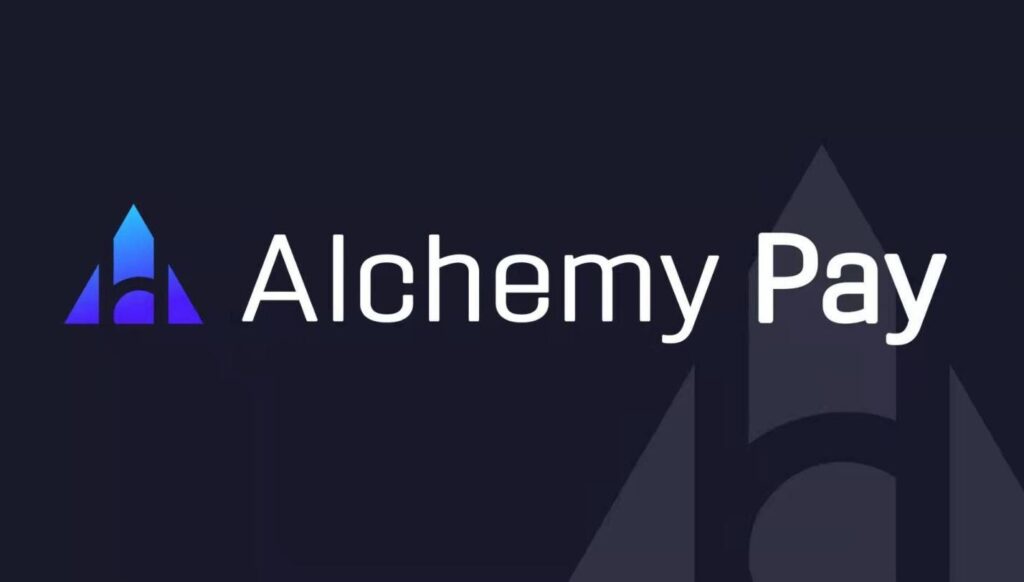Bitmain unveiled its cutting-edge Antminer S21 and S21 Hydro ASIC miners at the World Digital Mining Summit (WDMS) in Hong Kong on September 22, providing the eagerly anticipated performance figures.
The S21 boasts an impressive hash rate of 200 terahashes per second (TH/s) with an efficiency rating of 17.5 joules per terahash (J/T). Meanwhile, the S21 Hydro achieves 335 TH/s at an efficiency of 16 J/T.
These numbers are significant because, until recently, most Bitcoin ASICs operated above the 20 J/T threshold.
Rising electricity costs and the impending Bitcoin halving in April 2024 have thrust ASIC efficiency into the spotlight for miners.
Many are now shifting their focus towards incorporating renewable energy sources into their mining operations.
Sustainability in the mining industry was a central theme at the WDMS. During the opening roundtable, representatives from Terrawulf, Core Scientific, CleanSpark, and Iris Energy discussed the increasing importance of integrating renewable energy sources as a critical strategy for miners post-2024 Bitcoin supply halving.
One notable aspect is the transition towards decarbonizing the energy supply stack, which aligns with Bitcoin miners’ efforts to consume more renewable energy.
This transition is not limited to Bitcoin mining and is occurring across the United States. Bitcoin miners are playing a role by locating their mining operations in regions where decarbonization efforts are underway.
The forthcoming supply halving will leave miners facing the same capital and operational costs, along with the need to repay debts, while their block rewards are halved.
To maintain or increase profitability, miners must either source a higher percentage of their hash rate from sustainable energy sources or make efficiency improvements to their ASIC fleet.
Justin Kramer, founder of BMC, commented on the Antminer XP 21 rollout, noting that the S21’s efficiency, if reliable and competitively priced, could revolutionize crypto mining.
READ MORE: Creators Embrace Decentralized Platforms as Web3 Reshapes Adult Content Industry
However, the aftermarket firmware market and hydro/immersion systems offer tools to keep older generation miners profitable, so sub-110 TH/s miners may not become obsolete.
One intriguing development is Bitmain’s Carbon Neutral Certificate, which rewards environmentally friendly mining farms with better pricing and advanced delivery.
Kramer also raised questions about the significant increase in hash rate offered by the new S21 models compared to the S19, hinting at a systematic pattern in Bitmain’s model releases.
Contrary to the perception that Bitcoin mining harms the environment, some panelists at the WDMS argued that it promotes renewable energy adoption.
Haitian Lu, a professor in accounting and finance at the Hong Kong Sustaintech Foundation, highlighted that Bitcoin mining has become more efficient and cleaner in terms of energy use.
Bitcoin miners’ participation in demand response agreements with energy providers enhances energy grid efficiency and encourages the development of renewable energy projects.
In addition to tapping into stranded energy resources, Bitcoin mining’s energy efficiency advancements, as seen in next-gen ASICs like the Antminer S21, reduce energy consumption and boost miners’ profits while contributing to a more sustainable future.
Other Stories:
ASIC Launches Legal Action Against Kraken’s Australian Operator Bit Trade
South Korea’s Cryptocurrency Holdings Surpass $98 Million, Dominating Overseas Assets
Bitcoin Holds Steady at $27,000 as Crypto Community Awaits Fed’s Decision
Bitcoin experienced a downturn in the wake of the Wall Street opening on September 21, accompanied by renewed discussions of a $20,000 price target for BTC.
Over the past 24 hours, BTC’s price action, as reported by Cointelegraph Markets Pro and TradingView, has been lackluster, with the $27,000 level slipping out of sight.
This uninspiring performance came on the heels of the United States Federal Reserve’s decision to pause interest rate hikes, causing BTC/USD to drop by nearly $700 the day before.
In the absence of substantial volatility, market participants adopted a more cautious outlook.
Well-known trader Crypto Tony expressed the sentiment that a gradual ascent to $28,500 over the course of October would be ideal, followed by a surge of hype and FOMO (Fear Of Missing Out), only to witness another price decline.
Monitoring resource Material Indicators raised concerns about a potential “death cross” formation on the weekly chart.
This ominous occurrence takes place when specific moving averages (MAs) intersect, and in this case, the 21-week MA was on a trajectory to dip below its 200-week counterpart.
Material Indicators suggested the possibility of a lower low (LL) at the weekly close, with the 50-week MA potentially providing temporary support and triggering a short-term rally.
However, a LL could pave the way for further downward movement to test the $20,000 mark.
READ MORE: Bitcoin Holds Steady at $27,000 as Crypto Community Awaits Fed’s Decision
Additionally, there was anticipation regarding the liquidation of crypto assets by the defunct exchange FTX, which could exert selling pressure on BTC.
Speculation arose that FTX liquidators might attempt to bolster prices before distribution to prevent excessive erosion, although this remained speculative.
Amidst various viewpoints, some traders remained optimistic. CryptoCon, a popular trader and analyst, asserted that Bitcoin was still in the early stages of its next bull market, emphasizing this view with a chart.
Another trader named Jelle saw the current prices as an attractive buying opportunity for prospective BTC investors.
At the time of writing, BTC/USD was trading around $26,600, with gains in September totaling approximately 2.5%.
This marked Bitcoin’s best month since 2016, as data from monitoring resource CoinGlass indicated that the cryptocurrency had experienced losses every September in recent years.
Other Stories:
Creators Embrace Decentralized Platforms as Web3 Reshapes Adult Content Industry
ASIC Launches Legal Action Against Kraken’s Australian Operator Bit Trade
South Korea’s Cryptocurrency Holdings Surpass $98 Million, Dominating Overseas Assets
Alchemy Pay, the cryptocurrency payment gateway, is making significant strides in its global expansion efforts following the acquisition of a substantial payment license in the United States.
On September 20th, the company proudly revealed that it had secured a Money Transmitter License from the Arkansas Securities Department, granting it the authority to engage in various financial activities.
This newly acquired license empowers Alchemy Pay to offer services encompassing the issuance and sale of payment instruments, stored value, prepaid access, as well as the transmission and reception of money, digital currency, or monetary value.
Notably, this development marks a historic moment for Alchemy Pay as it represents the company’s very first Money Transmitter License in the United States.
The license aligns Alchemy Pay with other cryptocurrency firms, such as Coinbase, Block (founded by Jack Dorsey), MoonPay, and bitFlyer exchange, that are permitted to facilitate crypto-to-fiat transactions within the state of Arkansas.
For Alchemy Pay, this milestone is a testament to its commitment to compliance and its strategy to navigate local regulatory landscapes in key global markets.
The company has already obtained licenses in countries like Indonesia and Lithuania and is actively pursuing additional Money Transmitter Licenses in various U.S. states.
Robert McCracken, Alchemy Pay’s ecosystem lead, emphasized the company’s dedication to regulatory compliance, noting the significant investments made in securing licenses worldwide.
He articulated the company’s aspirations to expand its presence and services in the United States, further advancing its mission of bridging the gap between fiat and crypto economies.
Founded in 2018 in Singapore, Alchemy Pay operates a crypto-to-fiat payment platform that facilitates seamless transactions between fiat currencies like the U.S. dollar and the euro and cryptocurrencies like Bitcoin and Ether.
Currently, their platform supports payments in 173 countries, including regions such as Australia, Canada, Hong Kong, the United Arab Emirates, and India.
Notably, this announcement follows Alchemy Pay’s recent recognition as a compliant service provider within Mastercard’s Site Data Protection program in June 2023.
Earlier in the year, in January 2023, Alchemy Pay was officially listed as an official service provider by Visa, further solidifying its position in the global payment ecosystem.
Other Stories:
Secure Your Crypto Wallet Against Scams With These Essential Tools
Demystifying the Crypto Tax Headache: A Guide to Navigating Tax Obligations
3LAU’s Exit Sparks Debate Over Regulatory Risks on Decentralized Social Platform
Busan, South Korea’s second-largest city, is actively paving the way to become a cutting-edge blockchain hub by developing a public blockchain network that can seamlessly integrate with major blockchain platforms like Ethereum and Cosmos.
The city’s ambitious goal is to create a unified platform at the city level that can support a wide range of blockchain-based services and ultimately transform Busan into a thriving blockchain city.
To finance this transformative initiative, Busan City has earmarked an impressive budget of 100 billion Korean won (equivalent to $75 million) under the Blockchain Innovation Fund (BIF).
These funds will primarily be sourced from investments by public financial institutions within Busan, and there has already been substantial interest from nearly 100 private companies.
The BIF serves as a private fund dedicated to bolstering Busan’s blockchain industry and reinforcing its infrastructure, with strong collaboration between financial and public institutions within the city.
This monumental public blockchain development is a part of the broader Busan Digital Asset Exchange Establishment Promotion Plan and Future Schedule plan, which has a clear mission to position Busan as a leading blockchain city.
READ MORE: 3LAU’s Exit Sparks Debate Over Regulatory Risks on Decentralized Social Platform
The decision to pursue this path was partly due to the challenges faced by businesses operating within the city’s trade-free zone, as they found it cumbersome to navigate multiple blockchain networks for various projects.
Hence, the move towards a unified public blockchain network that can seamlessly interface with global counterparts like Ethereum was a strategic choice to enhance efficiency and user experience.
In addition to these efforts, Busan City is actively participating in the establishment of the Blockchain Trust Framework technology standard under the auspices of the Korea Internet & Security Agency.
This initiative seeks to elevate the quality of private services and facilitate greater interoperability among services by establishing standards in key areas such as blockchain technical systems, performance, and security.
These standards will also be extended to public services offered within Busan City, further solidifying its commitment to blockchain technology.
Looking ahead, the long-term blockchain development plan includes the creation of the Busan digital asset exchange in the first half of 2024.
This exchange will not only support digital assets but also facilitate the trading of tokenized securities, including valuable commodities such as precious metals (e.g., gold), industrial materials (e.g., copper), and energy resources (e.g., oil).
Moreover, the visionary administration behind these projects has its sights set on tokenizing and trading global intellectual property rights and carbon emissions rights in the future, marking Busan’s determination to be at the forefront of the blockchain revolution.
Other Stories:
Secure Your Crypto Wallet Against Scams With These Essential Tools
Demystifying the Crypto Tax Headache: A Guide to Navigating Tax Obligations
The CBDC Anti-Surveillance State Act, designed to thwart the issuance of a central bank digital currency (CBDC) by “unelected bureaucrats in Washington,” has advanced in its legislative journey, securing a significant milestone by passing through the House Financial Services Committee.
Representative Tom Emmer, the bill’s author, revealed in a press release on September 20 that the CBDC Anti-Surveillance State Act had successfully cleared the committee and received a favorable report for consideration on the House floor.
The next crucial step for the bill is a congressional vote.
Emmer highlighted that the legislation has already garnered support from 60 members of Congress.
He reiterated his concerns about the dangers associated with state-controlled currency and how it contradicts fundamental American values.
Emmer emphasized the importance of maintaining a financial system that aligns with American principles, emphasizing the need for a CBDC to be open, permissionless, and private, akin to traditional cash.
He warned against the risk of a central bank digital currency becoming a tool for surveillance and potential oppression, drawing parallels with the practices of the Chinese Communist Party.
The CBDC Anti-Surveillance State Act was reintroduced to the United States House of Representatives on September 14 by Emmer and 49 original co-sponsors.
Its initial introduction to Congress occurred in February 2023.
Key provisions within the bill aim to restrict the Federal Reserve from issuing a CBDC to individuals and prohibit the Fed from utilizing any CBDC for implementing monetary policy.
In a recent interview with Cointelegraph, Emmer highlighted the significance of digital assets in U.S. politics, characterizing them as a “sleeper issue” that resonates at both state and federal levels.
Emmer observed a generational divide within the United States, suggesting that citizens could resist policies that hinder the development of the digital space.
He believed that such resistance could expose lawmakers lacking technological expertise.
As the CBDC Anti-Surveillance State Act progresses through the legislative process, it remains a focal point of debate and contention in the evolving landscape of digital finance and government control over currency.
Other Stories:
3LAU’s Exit Sparks Debate Over Regulatory Risks on Decentralized Social Platform
Demystifying the Crypto Tax Headache: A Guide to Navigating Tax Obligations
Secure Your Crypto Wallet Against Scams With These Essential Tools
Grayscale, a prominent cryptocurrency investment firm, has recently made a significant move by relinquishing all rights to post-Merge proof-of-work (PoW) Ethereum tokens (ETHPoW).
This decision, announced on September 18, entails Grayscale’s complete abandonment of ETHPoW tokens on behalf of its record date shareholders.
After a thorough evaluation, Grayscale concluded that ETHPoW tokens had failed to develop substantial liquidity, and the custodian responsible for these products did not offer support for such tokens.
In their official statement, Grayscale explained, “As such, it is not possible to exercise the rights to acquire and sell the ETHPoW tokens, and on behalf of the record date shareholders, Grayscale is abandoning the rights to these assets.”
This decision comes over a year after the Ethereum Merge, a monumental event that signified Ethereum’s full transition from proof-of-work (PoW) to proof-of-stake (PoS).
The Merge took place on September 15, 2022, effectively splitting the Ethereum blockchain into the primary PoS-based Ethereum and a secondary PoW-based Ethereum network.
READ MORE: Cryptocurrency Market Sees Bullish Momentum Amidst Bitcoin’s Recovery
In the aftermath of the Merge, Grayscale deliberated whether to acquire EthereumPoW tokens and subsequently sell ETHW on behalf of its record date shareholders.
However, uncertainty regarding the support for ETHW tokens by digital asset custodians and trading platforms led the company to take an additional six months before reaching a decision.
It’s worth noting that while Grayscale opted to abandon ETHPoW rights, other cryptocurrency investment firms like ETC Group ventured into launching dedicated EthereumPoW exchange-traded products (ETPs).
Nonetheless, ETC Group discontinued its PoW-based ZETW ETP merely six weeks after its launch due to the lack of eligible custody providers.
Interestingly, Grayscale’s decision to forego ETHPoW tokens was revealed just one day before the firm proposed launching a new Ether futures exchange-traded fund.
On September 19, Grayscale filed an application with the United States Securities and Exchange Commission to list and trade shares of the Grayscale Ethereum Futures Trust (ETH) ETF on the New York Stock Exchange Arca Rule 8.200-E.
This move underscores Grayscale’s ongoing commitment to exploring and participating in the evolving landscape of cryptocurrency investment opportunities.
Other Stories:
Dubai-Based Cryptocurrency Exchange Faces Liquidity Crisis Amid Regulatory Scrutiny
DeFi Ecosystem Faces Challenges as On-Chain Activity Declines and Stablecoins Feel the Pressure
Binance CEO Changpeng Zhao has refuted claims made in a recent Decrypt report alleging that he had taken a $250 million loan from BAM Management, a company affiliated with Binance.US.
The report, which emerged on September 19, cited court documents pertaining to the ongoing legal dispute between Binance and the United States Securities and Exchange Commission (SEC).
According to Decrypt, Binance.US’ legal team had asserted in these documents that BAM Management US Holdings had issued a $250 million convertible note to Zhao in December.
However, Zhao took to social media to challenge the accuracy of this report.
In a post shared on X (formerly Twitter), Zhao presented a screenshot of the Decrypt article and asserted that the report had misconstrued the situation.
Contrary to the report’s claims, Zhao clarified that he had actually provided BAM Management with a $250 million loan and had not yet received repayment.
Throughout his response, Zhao hinted at the presence of additional inaccuracies in the report but refrained from specifying which details were erroneous.
This lack of clarification left room for speculation regarding the extent of inaccuracies within the original article.
READ MORE: DeFi Ecosystem Faces Challenges as On-Chain Activity Declines and Stablecoins Feel the Pressure
The backdrop to this dispute is the ongoing legal battle between Binance and the SEC. The SEC has repeatedly voiced its difficulties in obtaining information from Binance and Binance.US since the inception of the lawsuit.
In response, the SEC filed a motion demanding that Binance make its executives more available for depositions and furnish detailed information.
Nevertheless, during a recent hearing regarding the SEC’s motion, a judge expressed hesitance to grant the inspection request at the current juncture.
This episode underscores the high-stakes nature of the legal wrangling between Binance and the SEC, as well as the potential for conflicting narratives and interpretations to emerge from court documents and reports.
The intricacies of financial dealings and legal disputes within the cryptocurrency industry continue to captivate and challenge both regulatory authorities and market participants, leaving many questions unanswered and contested.
Other Stories:
Cryptocurrency Market Sees Bullish Momentum Amidst Bitcoin’s Recovery
Blockchain Betting: The New Way to Invest in Digital Assets
Dubai-Based Cryptocurrency Exchange Faces Liquidity Crisis Amid Regulatory Scrutiny
Joseph Bankman, the father of former FTX CEO Sam “SBF” Bankman-Fried, found himself embroiled in a family dispute over salary matters.
This familial clash spilled into the public eye as FTX debtors filed a complaint on September 18 in the United States Bankruptcy Court for the District of Delaware, accusing Bankman and Barbara Fried, SBF’s parents, of allegedly misappropriating millions of dollars within the FTX exchange’s operations.
According to official court documents, Bankman’s employment contract with FTX US had stipulated a $200,000 annual salary after his leave of absence from Stanford Law School in December 2021.
However, a puzzling discrepancy emerged as Bankman claimed to both FTX US and his son that he was anticipating a more substantial $1-million annual salary.
This confusion raised eyebrows, and Bankman seemed to imply that Barbara Fried might have influenced their son to endorse the salary alteration.
The complaint contends that Bankman’s influence did indeed have an impact, as SBF subsequently granted his parents numerous financial benefits.
These perks included a $10 million allocation from Alameda, a $16.4-million property in the Bahamas financed by FTX Trading, the ability to charge approximately $90,000 to FTX Trading in the Bahamas, and options to acquire company stock.
READ MORE: Dubai-Based Cryptocurrency Exchange Faces Liquidity Crisis Amid Regulatory Scrutiny
As of the time of this publication, there has been no response from the legal team representing Bankman and Fried to these allegations.
This legal action represents the latest development in the ongoing bankruptcy case involving FTX and several of its subsidiaries, a case initiated in November 2022.
Meanwhile, Sam Bankman-Fried faces a series of 12 criminal charges, to be divided into two trials scheduled for October 2023 and March 2024.
Since his bail was revoked by a federal judge in August, Bankman-Fried has been primarily confined to the Metropolitan Detention Center in Brooklyn as he awaits his October trial.
On September 19, a three-judge panel entertained an appeal from SBF’s legal team, who sought his release from incarceration to adequately prepare for trial, citing concerns such as limited internet access and potential First Amendment issues in his current confinement.
Other Stories:
Cryptocurrency Market Sees Bullish Momentum Amidst Bitcoin’s Recovery
Blockchain Betting: The New Way to Invest in Digital Assets
DeFi Ecosystem Faces Challenges as On-Chain Activity Declines and Stablecoins Feel the Pressure
The United Kingdom is inching closer to strengthening its efforts against illicit cryptocurrency activities as the Economic Crime and Corporate Transparency Bill progresses through the final stages of approval in the House of Lords.
Introduced in September 2022, this bill has been carefully crafted to combat financial crimes linked to cryptocurrencies, reflecting the government’s commitment to address this burgeoning concern.
During the bill’s review process, the House of Lords made certain amendments aimed at clarifying its intentions.
These amendments underscore the bill’s core objective: targeting the monetary proceeds derived from fraudulent activities and other financial crimes.
In addition to its anti-fraud measures, the bill seeks to introduce provisions promoting corporate transparency and regulating overseas business registrations.
These initiatives represent a comprehensive approach to combating financial misconduct and ensuring a level playing field for businesses operating within the UK.
As the bill nears its final stage, it awaits the verdict of the House of Commons.
This parliamentary body will have the option to either accept the proposed amendments or suggest further modifications.
Once approved by both houses of Parliament, the bill will receive royal assent, a formal endorsement by the monarch, thus becoming law.
In a parallel development, the Financial Conduct Authority (FCA), the UK’s financial regulator, has expressed its willingness to collaborate with cryptocurrency companies.
READ MORE: NFL Quarterback Trevor Lawrence and YouTube Influencers Settle FTX Lawsuit
The aim is to create a much-anticipated regulatory framework for the cryptocurrency industry. FCA Executive Director Sarah Pritchard, speaking at London’s City Week conference, emphasized the importance of cooperation in shaping rules and regulations that will benefit not only the markets but also consumers and firms.
Pritchard clarified that the FCA’s role primarily involves ensuring that cryptocurrency firms operating in the UK adhere to Anti-Money Laundering and Counter-Terrorist Financing legislation.
This approach demonstrates the FCA’s commitment to striking a balance between fostering innovation within the cryptocurrency sector and safeguarding against potential financial crimes.
In conclusion, the Economic Crime and Corporate Transparency Bill’s advancement through the UK’s legislative process underscores the government’s dedication to combatting illicit cryptocurrency activities.
Simultaneously, the FCA’s willingness to collaborate with cryptocurrency firms reflects a balanced approach, seeking to regulate the industry while facilitating its growth in the UK’s financial landscape.
Other Stories:
FTX Reopens Secure Customer Claims Portal Following Cyberattack
Bitcoin Stabilizes at $26,500 After Hitting September Highs: Eyes on Federal Reserve’s FOMC Meeting
Bitcoin may experience a surge in upside volatility, according to John Bollinger, the creator of the Bollinger Bands volatility indicator.
In a recent post on X (formerly Twitter), Bollinger pointed out that Bitcoin was poised for a significant breakout.
Bitcoin had reached new highs in September, challenging resistance levels that had eluded it since mid-August, as reported by data from Cointelegraph Markets Pro and TradingView.
Bollinger, however, found these developments encouraging, relying on his Bollinger Bands indicator, which utilizes standard deviation around a simple moving average to gauge price ranges and volatility.
Currently, BTC/USD is exhibiting daily candles that touch the upper band of the Bollinger Bands, which can signify an impending reversal back to the center band or a surge in upside volatility.
The recent narrow Bollinger Bands on Bitcoin contribute to the optimism that the latter scenario will prevail.
Bollinger noted, “And there is the first tag of the upper Bollinger Band after a new set of controlling bars was established at the lower band.”
However, he cautioned that it’s too early to predict if Bitcoin will continue its upward trajectory along the upper band.
READ MORE: NFL Quarterback Trevor Lawrence and YouTube Influencers Settle FTX Lawsuit
This narrowing of the Bollinger Bands was previously observed in July and preceded a return to lower price levels.
Bollinger’s analysis aligns with the sentiments of seasoned Bitcoin traders and analysts on shorter timeframes.
Despite the recent strength in Bitcoin’s performance, there is a sense of caution in the market.
Various trendlines that previously acted as support are still above the current spot price.
On-chain monitoring resource Material Indicators advised X subscribers to be skeptical of bullish momentum.
The commentary from Material Indicators highlighted the presence of technical resistance at the Key Moving Averages and support at the LL (likely low).
It suggested that Bitcoin might trade within a range and emphasized the importance of upcoming tests of R/S (Resistance/Support) levels to gain clarity about Bitcoin’s direction in the coming week.
Additionally, Material Indicators referenced the impending decision by the United States Federal Reserve regarding interest rates.
This decision could potentially introduce sudden volatility and unreliable short-term trading signals, further complicating Bitcoin’s near-term outlook.
Other Stories:
Magic Eden Unveils Solana’s cNFT Support
FTX Reopens Secure Customer Claims Portal Following Cyberattack
Bitcoin Stabilizes at $26,500 After Hitting September Highs: Eyes on Federal Reserve’s FOMC Meeting












